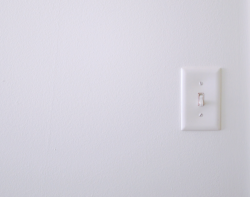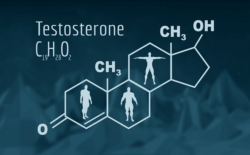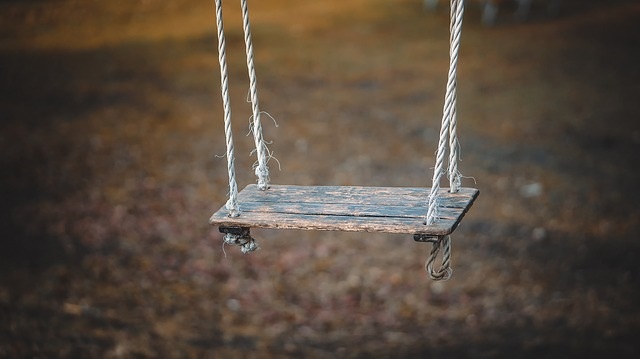Several weeks ago I wrote a post about Penis Size and Condom Use. It was a legitimate commentary on the state of medical and science marketing, but, truth be told, I used it as much to get a post with the words penis size circulating in blogosphere as I did to comment on bad medical journalism. Penis size ranks among the highest search phrases around. The post got a lot of hits, but no discussion. It was, after all, a bit of a bait and switch using research on penis size to describe the state of medical marketing – not what most would have expected when Googling that phrase.
Recently, however, a gentleman commented both on the content of the article and the nature of modern eroticism. This gave me pause on many fronts. First, I had to consider whether to approve the comment at all – he used rather frank terms. Would our readers be offended? Would they discontinue reading because of the terminology? The very act of having to consider whether to publish the comment, led me to wonder when our adult, female ears became so sensitive that we could not speak or write frankly about sexuality? Probably around the time of Freud, but I think I missed that memo.
And then, there was the comment itself about the nature of modern sexuality or more specifically, eroticism.
It is that raw eroticism mediated by plastic [that] is devoid of real memory. When I think of some of my worst erotic encounters, they invariably are those mediated by plasticity.
How absolutely telling his comment was; modern eroticism is plastic. From a physiological standpoint, the plastic barrier that a condom provides reduces the erotic sensitivity for both parties – even when the condoms fit appropriately. And apparently, as the original research suggested, more often than not condoms do not fit correctly.
From the language perspective, modern sex is most often discussed in terms of disease, violence or ‘safe sex’ – no pleasure, no passion, no eroticism and not even an appreciation those concepts – only power, disease and violence. Even our images of what is supposed to be sexually desirable are plastic, modified and unreal – think unnaturally thin women, with fake boobs, botoxed lips and when at all possible, heavily photoshopped so that nary a glimmer of natural or erotic beauty comes through. Indeed, there is no reality to our plasticized versions of eroticism.
So how do we talk about sex in a modern culture, where disease from sex places a barrier on the act and the language of pleasure? How do we talk about sexuality when the medicalization of sex supersedes the erotic? How do we talk about eroticism when the politics of power elevate the sperm of violent, repugnant men – rapists, pedophiles and incestuous degenerates – above the health and well-being of girls and women? How do we talk about sex when women don’t enter the conversation, except to denounce the actions of men? How do we talk about sex, sexuality and eroticism in the 21st century?
We don’t. We seem only capable of talking about or writing or even visualizing notions of plastic, unreal, violent or medicalized sex. To make matters worse, we fail to distinguish among the ‘types’ of sex, between sex and sexuality, between the erotic and the mechanical. It’s all just sex. Well, it’s not.
We need a new language of sexuality; one that brings back to the fore a notion of beauty and pleasure for both participants; one that speaks frankly about sex, sexuality and eroticism. We need a language that is honest about female and male sexuality, anatomy and pleasure and that is capable of distinguishing acts of violence from sex.
I would argue that conversations about penis size and female sexual pleasure have to come into the mix in some form, preferably with honesty. Ladies, what beyond the obvious, do we really know about the male penis or male sexuality? Probably, not a lot. Does penis size affect female sexual pleasure? Does penis size affect male sexual pleasure? Who knows. Nobody, but the purveyors of porn talk about this stuff.
And guys, how much do you really know about the female anatomy or more importantly female sexuality? Sure you’ve seen hundreds, if not thousands of pornographic images of women faking pleasure with over-endowed men. And of course, you imagine yourselves the wielders of such pleasure, but in reality how many of you know what a real woman actually wants and needs to achieve pleasure? How many of you have taken the time to find out, or better yet, become skilled in these endeavors?
If we are to move beyond the plastic, the political, the violent, the sterile and mechanistic views of sex, we need to bring sexuality, eroticism and pleasure back into the conversation. We need a new language about sex and we need it now.















I was subjected to incest from an early age. I told my mother. The family member was taken to jail. The judge interviewed me in chambers I was six years old. After being asked very descriptive questions for nearly an hour, I began crying. The judge called my mother into his chambers and told her that he couldn’t proceed with the case because I wouldn’t make a “CREDIBLE” witness. The monster was given the legal right to be alone with me from there on out. He continued to molest me until my mother took me and my sister and moved to hide us from his evilness. This was my first exposure to “sex”.
I have told everyone this because at 70 years old, this animal’s selfish act sometimes still affects me today.
You are right. This is not sex! It’s a shame that so many have experiences such as mine and feel like this has ANYTHING to do with sex, love-making, intercourse…..whatever you want to call it, but the pleasurable act of two people enjoying each other’s bodies!
Addressing your original post, I have been married 4 times. (Last one has lasted for 38+ years and counting) so I have experienced different sized men. As far as vaginally simulation, size does matter, at least in my experience. I feel a bit like Goldilocks….too big and it can cause discomfort, too small and, well there just isn’t enough contact, and just right, well, is just right. That being said, through talking with each partner, we figured out ways to make it “work” for both of us. The old adage, if there’s a will, there’s a way is true. Communication is the key. My current husband and I talk about different arousal techniques over coffee or in the car. We give each other cues during sex. Even after 38 years, I cannot totally read his mind. So we make sure that we tell each other the touch that is right, and the touch that isn’t. By the way, he has a smaller pens and comes to orgasm rather quickly, but he makes sure to address my sensual and sexual needs.
My point is, talk to each other, not JUST while you are in the act of stimulating each other, but in a place where you both feel safe saying what you like and dislike, without judgment.
I used to make myself disappear in a sense when sex was brought up in conversation. There were a few different reasons why: 1. I have a small or average size penis (depending) 2. I typically don’t last too long (it varies) 3. I have bad memories of unwanted sexual experiences that I’m still affected by. etc etc etc
My (soon to be ex) wife is a sex addict and was raped as a child and that kind of made me stand off- ish even though she loved my sex which eventually was the central problem leading to our divorce because it got out of control and I eventually got turned off by sex in general. My new girlfriend is also a sex addict and also was raped and molested as a child, I am very atrracted to her sexually and I actually am getting back into enjoying sex… But as I soon found out when I first inserted my penis in her, she had a hysterectomy and lets just say that I’m glad I wasn’t JUST sexually attracted to her. Moral of my story is that, if you can’t be upfront and honest about ANYTHING rather it be size, stamina, endurance, past experience (good/bad), slang or lingo, social stigmas or anything else for that matter, than it can and will hinder your life, relationships, willingness to participate, or even your willingness to engage in something as harmless as conversations about sex.
I love sex!
I love my penis!
I love vagina!
AND I’M NOT AFRAID TO TALK ABOUT IT!
Hopefully I didn’t offend anybody
I think women find it difficult to discuss sex because they lack the availability of quality practice and experiment to base those discussions on. (Being religious, or afraid to be seen as ‘non-god-fearing’ doesn’t help either…) Being inundated by fake and sophisticated counterfeit sexual encounters, no conversation will sound “real” in public.
The thing is, it is not something we can concoct. It is not another mask, persona or costume behind which to hide. Genuine sexual authenticity is a challenge to enact with an “evolved” sexual partner on a regular basis. (Sorry, one night stands don’t count.) Sexual authenticity is to be understood as an inherent quality and capacity of a person, “us,” and the process of our orgasm. Because is it inherent, it is not negotiable. Sexual authenticity cannot be stripped away, nor can it be appropriated. In short, our orgasm in question either is authentic or is not, period.
No sooner can we talk about sex honestly than rejecting to accept someone else’s version of us and our orgasms. If we know who we are, we do not need to try and convince another person that we know what a good fuck is. If we don’t know who we are… well, we need to take a step back and discuss the difference between feeling naked or nude first…. our CONFIDENCE!
First thought is maybe “we” take offense too easily which makes discussion difficult. If using fuck to describe a consensual sex act is an issue that is part of the problem.
Why don’t we talk more about the positive aspects of sex? You have the forum here – how do you present sex in a positive or educational light?
The terminology you use is part of the issue and needs to be corrected whenever possible. Incest is rape. Pedophilia is rape. Rape is not sex, it is a criminal act. The language isn’t imprecise, but we have been silent too long when the language is misused and misrepresented. It is sloppy and harmful to all victims to call it anything different. If we want to make the discussion of sex/fucking/making love a positive thing, then we need to stop allowing criminal activity to be called sex. These things – pedophilia/incest/rape are not sex, they are violence.
Language is reality. We don’t need to change the language – we need to insist on its correct usage.
You are correct, we take offense too easily. And certainly, we have allowed the sloppiness in the language. I would go even further and suggest that rape, incest and pedophilia are criminal assault. Perhaps if we dissociate those acts of violence from sex entirely, we could get further in the discussion.
We should have a discussion about female sexuality. It wasn’t a path I thought I would travel with this blog, but it has generated a lot of comments and discussion, here, on FB and on twitter. Interestingly, most of the discussion has been offline or in private- women sending direct messages, hesitant to speak publicly about this. Only a few brave souls have commented publicly. Again, the offer for a guest blog remains. We need different voices.
Your hesitation to approve his comment (I had no issue with the language at all) says more to me about the discussion about sex by women than any concern about penis size. There was nothing inflammatory or derogatory – why did you hesitate at all?
Why do so many women find it difficult to speak about sex in frank terms? Why is it relatively easy to get men to engage in discussion regarding size, technique, hooking-up, etc? Why is it so difficult to get the same discussions with women?
I run a lesbian discussion group and trying to get any kind of sex topic started is extraordinarily difficult. Are they shamed? Embarrassed? Afraid they’ll be judged?
Sometimes I understand the men I talk to more than the women – what is wrong with having real discussions? (I’m not talking pornographic, but frank – although there is nothing wrong with pornographic discussions.) How are we supposed to help ourselves and other women if we don’t take control of our sexual lives?
There is nothing wrong with the current language of sex as a starting point – more women need to start to use it. Subversion and change comes with knowledge.
You know, it struck me as odd too that I would consider not publishing his comment. I have no problems with a frank discussion about sex, but the whole notion that it might be offensive to someone else is what led me to question the very nature of how we do, or more honestly, don’t speak or write about sex as women. And when we do, it’s often after the fact, after someone has been wronged. And I thought that’s not right.
You are correct, this and the other posts really had nothing to do with penis size. This one in particular was more about the taboo of certain words. And the new language issue, a friend from our Facebook community (Lucine Women Community), brought up the notion that when we do speak of sex, we use the same words for all types of sex – whether it is ‘good’ sex or ‘bad’ sex like rape, incest or pedophilia – it’s all called sex – so then how does one distinguish good sex from bad sex when the language is so imprecise. She brought up an interesting point that I had not considered.
I am interested in your comment that lesbian women are also hesitant to talk about this. Would you care to write a post about this or your work? We’re always looking for guest writers.